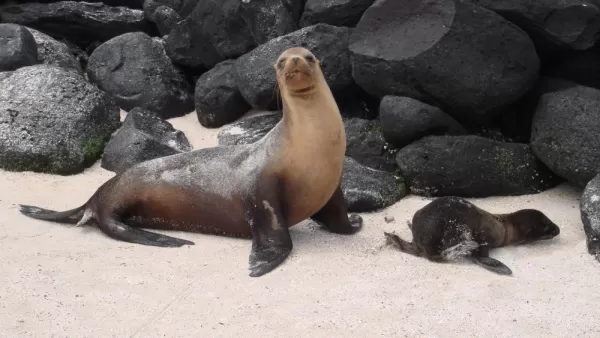Urbina Bay is located at the east base of the Alcedo volcano, with an approximately 3200m path connecting it to the beach, where, after a beach landing, cross through the coastal zone, traversing sand, rocks, lava, corals, and plant formations. At this site, you may see large-sized land iguanas, as well as giant Galápagos tortoises, flightless cormorants, blue-footed boobies, Galápagos penguins, pelicans, and marine iguanas.
Return to the yacht to enjoy a delicious lunch, followed by a short sailing towards Tagus Cove. Here take the opportunity to snorkel, surface dive, or kayak. At around 4 pm, hike to the top of the cliff that takes you to a viewpoint of Lake Darwin, a lake that has high saline concentrations.
Finally, observe Lake Darwin. It doesn’t contain any fish and only a few lifeforms due to its high salinity. Supposedly, in the past, there was an explosive volcanic eruption in the area since there are a large number of volcanic rocks of varying sizes that can be found here. Among the most common are small spherical balls, that are almost perfect in shape, referred to as “lapili” or petrified rain.
Possible activities: Snorkeling, Kayaking, Walking




















